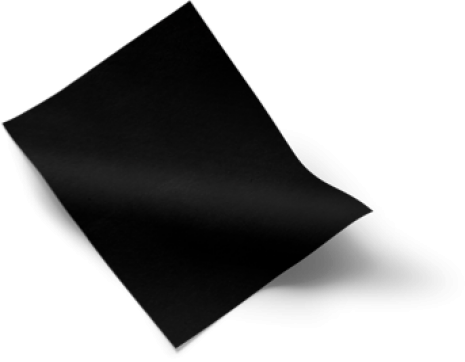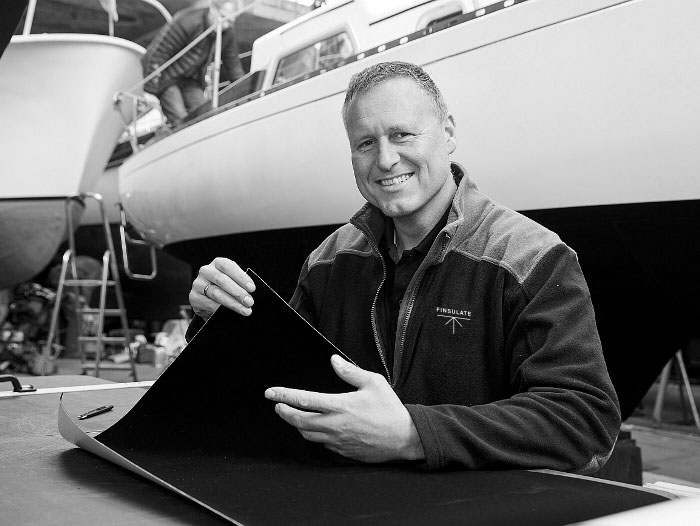The world is changing rapidly. There is a growing ‘green awareness’ and the realisation that we must make the Earth and its oceans healthy again. For everyone active on the water, this environmentally friendly change is visible in the arrival of, for example, electrically powered ships, green energy such as shore power, and the correct antifouling. In recent years, the impact of traditional antifouling methods on marine ecosystems has become a major concern, which has led to the introduction of new regulations that shipyards must prepare for by 2025.
Antifouling products contain harmful chemicals, such as synthetic fluoropolymers and biocides. Research is increasingly showing that these harm marine life. Antifouling leaves invisible traces of toxicity, which is why everyone eagerly looks for non-toxic solutions that protect our oceans and their creatures.
New antifouling regulations: what shipyards need to know in 2025
The global trade in antifouling paints is extensive, with more than 3 billion dollars in 2023. Logically, the current manufacturers do everything they can to quickly develop friendly solutions an environment. Anyone who searches for results online will find the work of the global PR machine: ‘Silicone antifouling is the solution because less toxic than traditional antifouling!’
Less toxic is still toxic, but silicone-based paint is the most popular in search engines at first glance. However, scientific reports show that the effect is less effective, and the wear is more significant. Read this article on Researchgate about ‘Advantages and drawback of silicone-based FRCs‘.
Recent EU research on silicone antifouling: ‘There is currently a wide variety of compositions of silicone FRCs on the market. Some of them are more toxic than others. In addition, they can contain substances, such as silicone oil, that can remain in the environment.’

What are shipyards themselves doing to become green?
Monaco Marine on the Cote d’Azur says: “Our shipyard network is ISO 9001, ISO 14001 and ISO 45001 certified, demonstrating our commitment to quality, environmental standards and safety. La Ciotat shipyard was the first to obtain ISO 9001 certification for its quality control system and ISO 14001 certification for environmental management. We are also looking at using clean energy sources to reduce our environmental footprint. Promoting the conservation of habitats, fauna, and flora is also part of our mission.”
Turkey’s Cemre Shipyard has been doing well since the EU Green Deal when it launched the world’s first e-methanol service vessel (SOV), the NB1094. Powered by batteries and dual-fuel and pure methanol engines, this vessel can run on renewable e-methanol derived from wind energy and biogenic carbon. This technology is predicted to reduce CO2 emissions by around 4,500 tonnes annually, setting a new standard for green ships in the maritime industry.
The Spanish superyacht group MB92 also has a green mission: “We work closely with organisations such as the Water Revolution Foundation and SEA Index, as well as educational institutions, sustainability consultancy services, and leading voices in sustainability, to continue to promote research and innovation in design, technology, and engineering.” Since 2023, the MB92 yard has advised its clients to use Finsulate, the most suitable eco-friendly antifouling solution, without sacrificing speed or performance.
It takes two to tango
The awareness that traditional antifouling can be better replaced by a long-lasting and innovative antifouling solution is slowly emerging. For now, shipyard clients are more interested in switching to hybrid engines during a refit to reduce fuel costs and, at the same time, reduce CO2 emissions. Fortunately, the government is helping to push everyone in the right and green antifouling direction.
Significant changes to antifouling regulations will occur by 2025, affecting shipyards and private boat owners worldwide. Germany is leading the way with plans to ban the sale of certain harmful antifouling products to private individuals.
The EU is keeping up the pressure. Effective 1 January 2023, the European Maritime Safety Agency (ESMA) has banned ships from fitting or re-fitting antifouling systems containing cybutryne. This follows the addition of Cybutryne to the IMO list of prohibited substances under the AFS Convention.
Cybutryne (also known as Irgarol-1051) is used on ship hulls as an antifouling agent by inhibiting electron transport in algae and plants. After several studies, it is widely recognised that the toxicity and persistence of Cybutryne pose a significant environmental risk.
Non-Toxic Maintenance Solutions
The global shift to environmentally conscious practices forces shipyards and marine maintenance professionals to adapt their operations to the underwater hull further. Compliance with new regulations means switching to non-toxic maintenance solutions that align with the latest legislation. Failure to comply can result in fines and reputational damage.
Ship owners are encouraged to explore alternatives such as Finsulate, which offers a sustainable and effective approach to hull protection. By understanding key data and compliance requirements, the maritime industry can proactively adapt and ensure smooth transitions that promote marine life’s protection and contribute to our oceans’ overall health.
It is essential to inform all parties involved, including ship owners, ship operators, managers, captains, owners’ representatives and recognised organisations, of the regulations in order not only to avoid being penalised for non-compliance but also to protect the environment as a whole.

New antifouling regulations: what shipyards need to know in 2025
Among the emerging antifouling solutions, Finsulate stands out as a frontrunner. It is an innovative, environmentally friendly alternative that prevents the adhesion of algae and marine organisms without using harmful substances. Finsulate stems from a growing awareness of the detrimental effects that traditional methods have on marine ecosystems.
Historically, antifouling coatings have relied on toxic substances such as synthetic toxins and biocides to prevent the growth of marine organisms on ship hulls.
Biocides and synthetic fluoropolymers can alter the chemical balance of water bodies, disrupting ecosystems and reducing biodiversity. Sensitive species, such as coral and shellfish, are particularly vulnerable and experience stunted growth and reproductive problems.
Innovation Award Winner
Ships leave invisible traces of toxicity that disrupt marine life by contaminating habitats and food sources. As evidence of these harmful effects mounts, governments and environmental organisations are pushing for stricter laws to protect marine life.
Finsulate’s founder, Rik Breur, decided not to wait and see but developed an environmentally friendly antifouling wrap with an eight-year warranty. The invention has won numerous Innovation Awards since 2016 and recently the ECO Excellence 2024 Award at the Biograd Boat Show in Croatia.
Finsulate antifouling is a fantastic opportunity for the professional industry and private yacht owners to switch to this revolutionary game changer. Want to know more? Contact Finsulate for a cleaner ship and a cleaner ocean.




